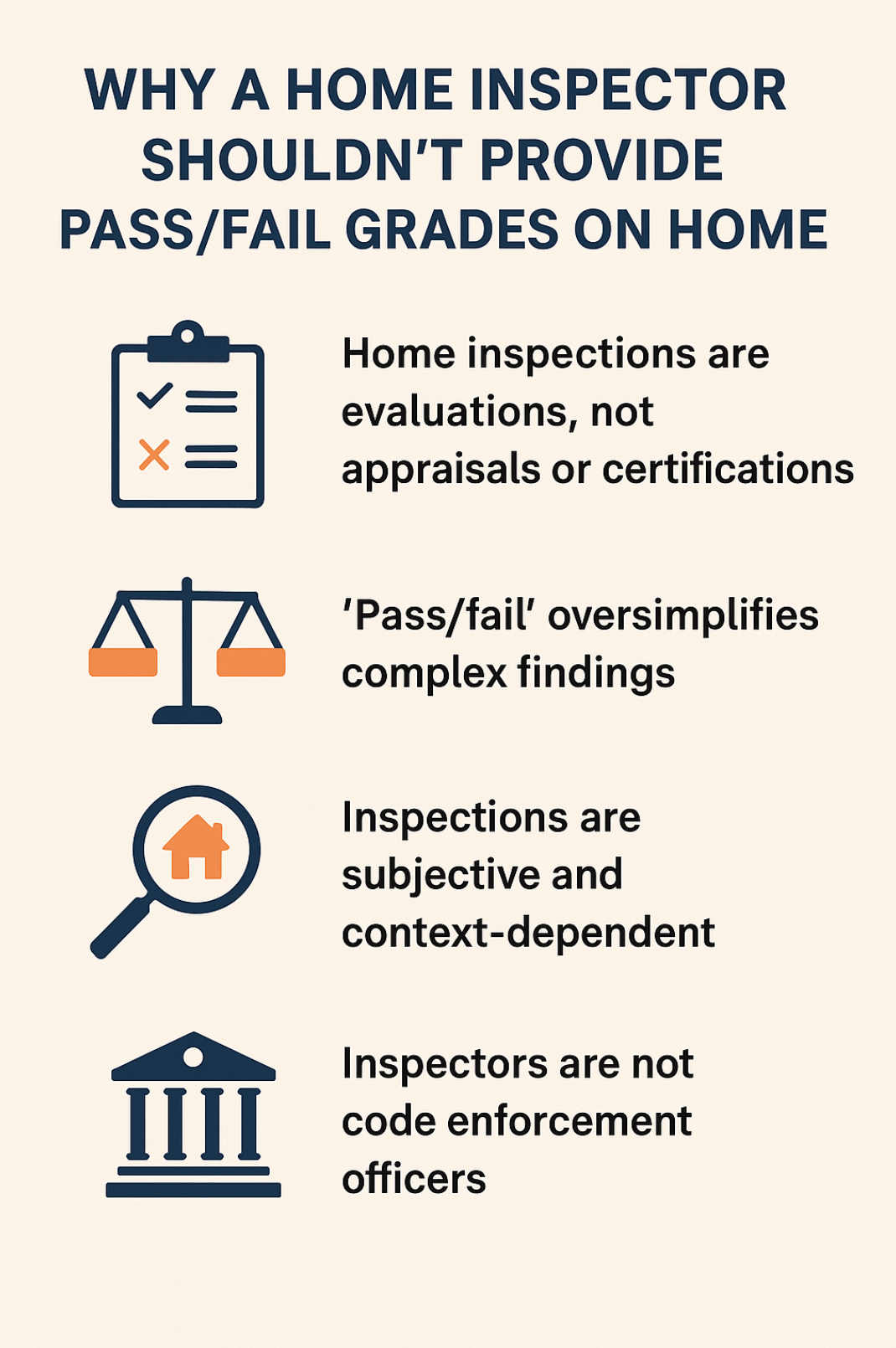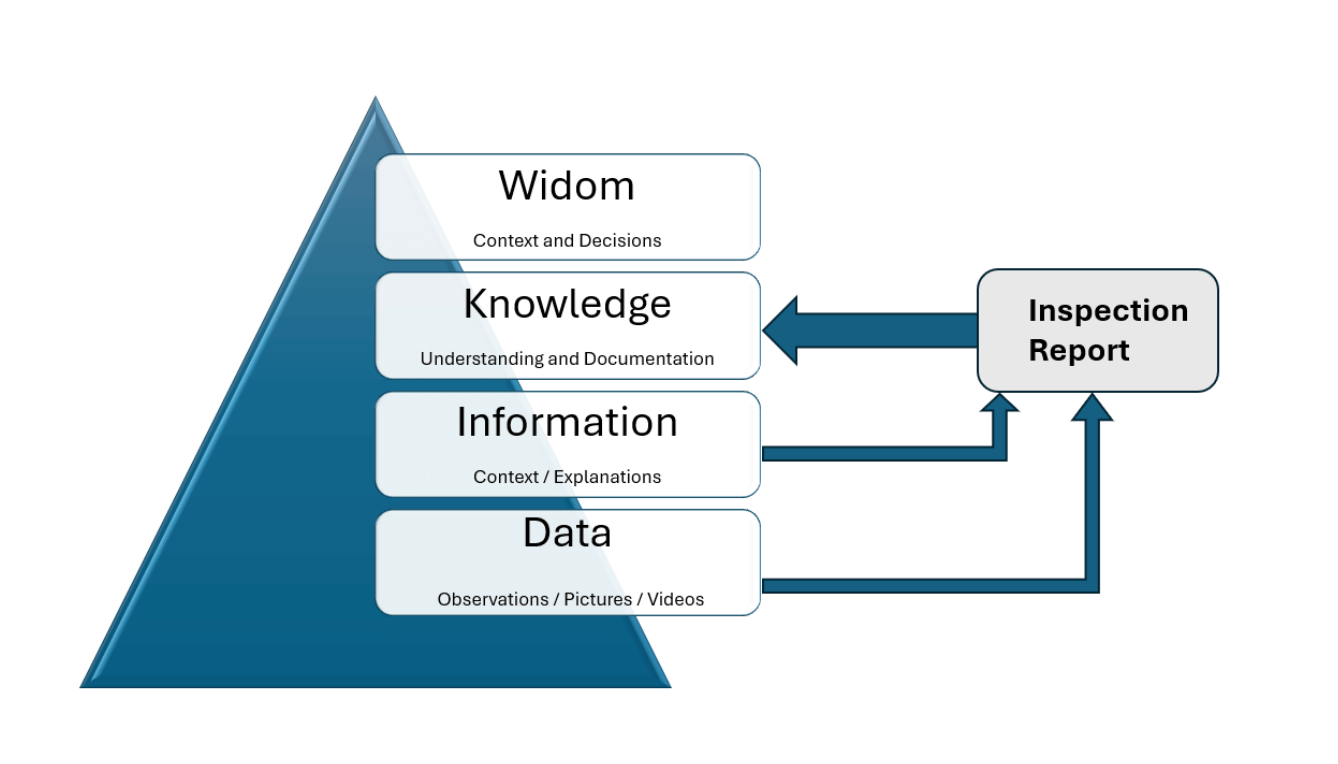Can a home fail a Home Inspection? – It Depends, On the Home and the Buyer.
Like most things in life, it really depends on context and a multitude of factors and variables.
First Let’s Frame the Problem with Pass/Fail Grades

A few basic truths:
- Every home is different and has a different number of issues
- Not all issues are equal
- No universal standard exists
- Buyers have different budgets
- Buyers have different goals
- Buyers have different timelines
- Buyers have different risk tolerances
Now, ask yourself, what would a failing grade on a house be to you? What would be passing? And what would be in the middle?
What about a different buyer for a different house?
Houses have many systems (roof, foundation, electrical, plumbing, etc.). Each may have different levels of condition and needed repairs.
What might be acceptable to one buyer (e.g., an older roof that still has life left) might be unacceptable to another.
A house might need repairs, but still be perfectly livable depending on buyer priorities and budgets.
Things to Consider In your home buying journey:
Before your inspection, you should jot down what your limits are for the major components and discuss with your realtor.
A good example would be the roof. If the home needs a new roof, is that within budget? Is there room to negotiate the price? If there’s not, then what does that mean to you?
The Inspector’s job is to gather data and information as a neutral 3rd party and turn this into an inspection report that provides knowledge for the buyer(s). The buyer(s) can then use this knowledge, along with advice from their inspector and realtor to gain wisdom, so they can make decisions that are right for them and their family.

Goal of the Inspection Report:
The inspection report provides a detailed account of the condition of the home at a point in time. It provides context around the issue and within reason, from an Inspector’s perspective the severity of the issue. It’s important to understand that some issues may require further evaluation from a qualified professional to provide additional information around the cost and extent of the issue along with timelines on repair.
The Inspector’s goal is to provide a written report that describes observed defects, safety issues, and maintenance items so the buyer or homeowner can make informed decisions within the context of what they are willing to accept.
